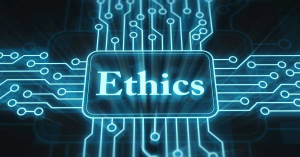In an era where technology permeates every aspect of life, programming ethics have become a critical consideration. Programmers hold immense power in shaping the digital landscape, influencing how societies function and individuals interact. With great power comes great responsibility, and this responsibility calls for a strong ethical foundation.
The Importance of Ethics in Programming
Programming isn't just about writing efficient code; it's about writing code that aligns with ethical principles. Ethical programming ensures that technology serves humanity positively, avoids harm, and promotes fairness.
- Protecting Privacy: Programmers often have access to sensitive data, including personal and financial information. Ethical considerations demand that data be handled responsibly, safeguarding users' privacy.
- Avoiding Harm: A bug in the code can cause minor inconveniences or lead to catastrophic failures. For instance, software glitches in healthcare systems can jeopardize patient safety, highlighting the need for ethical diligence.
- Promoting Fairness and Inclusivity: Bias in algorithms can perpetuate discrimination, impacting decisions related to hiring, lending, and law enforcement. Ethical programming strives to create systems that are unbiased and fair.
Key Ethical Principles in Programming
Several core principles guide ethical programming:
- Accountability: Programmers must take responsibility for their code, understanding its potential impact. When things go wrong, accountability means addressing the issue transparently and taking corrective actions.
- Transparency: Ethical programming involves creating systems that are understandable and accessible. Users should know how their data is being used and why certain decisions are made by software.
- Beneficence and Non-Maleficence: These principles focus on doing good and avoiding harm. Programmers should aim to develop software that benefits users and society while minimizing risks and negative consequences.:
- Justice: Justice in programming means ensuring fairness in software design and implementation. It involves addressing biases and ensuring that all users are treated equitably.
- Respect for Autonomy: Users should have control over their data and how it is used. Ethical programming respects this autonomy by providing users with clear choices and consent mechanisms.
Ethical Challenges in Programming
Despite the best intentions, ethical dilemmas frequently arise in programming:
- Data Privacy and Security: With the rise of big data, organizations collect vast amounts of user information. While this data can provide valuable insights, its misuse can lead to privacy breaches. Ethical programming requires balancing the benefits of data analysis with the rights of individuals.
- Bias in Algorithms: Algorithms are only as good as the data they are trained on. If the training data contains biases, the algorithm will perpetuate those biases. This can lead to unfair outcomes in areas like hiring, lending, and criminal justice.
- Artificial Intelligence (AI) and Automation: AI systems are increasingly making decisions that were once made by humans. These systems can have profound impacts on people's lives, from approving loans to diagnosing diseases. Ethical programming ensures that AI systems are transparent, fair, and accountable.
- Weaponization of Technology: Technology can be used for both constructive and destructive purposes. Programmers may face ethical dilemmas when their work could be used for harmful purposes, such as developing surveillance systems or autonomous weapons.
- Dark Patterns: Dark patterns are design choices that trick users into doing things they might not otherwise do, such as signing up for subscriptions or sharing more data than intended. Ethical programmers avoid these manipulative practices, prioritizing user welfare over short-term gains.
Case Studies in Programming Ethics
- Facebook-Cambridge Analytica Scandal: The misuse of user data for political purposes highlighted the ethical responsibilities of programmers in safeguarding data. This scandal raised awareness about the potential misuse of personal information and the importance of ethical data practices.
- Volkswagen Emissions Scandal: Volkswagen's software engineers programmed cars to cheat emissions tests. This case underscores the importance of ethical accountability in programming, as such actions can lead to severe environmental and societal harm.
- Microsoft’s Tay Chatbot: Tay, an AI chatbot, was designed to learn from interactions with users. However, it quickly began generating offensive content due to unethical user inputs. This case highlights the need for ethical foresight in programming to prevent unintended consequences.
Strategies for Ethical Programming
To navigate these challenges, programmers can adopt several strategies:
- Adopt a Code of Ethics: Many professional organizations, such as the Association for Computing Machinery (ACM), provide codes of ethics that serve as guidelines for ethical programming. These codes offer a framework for making ethical decisions.
- Ethical Training and Education: Incorporating ethics into computer science curricula helps future programmers understand their responsibilities. Regular training for professionals ensures they stay updated on ethical standards.
- Inclusive Design Practices: Designing with diversity in mind helps prevent bias. Including diverse perspectives in the development process ensures that software meets the needs of all users.
- Regular Audits and Testing: Conducting regular audits of algorithms and data can help identify and mitigate biases. Rigorous testing ensures that software behaves as intended and minimizes harm.
- User-Centric Design: Prioritizing the user’s needs and rights leads to more ethical software. This includes providing clear privacy settings, ensuring accessibility, and avoiding manipulative design choices.
The Role of Organizations in Ethical Programming
While individual programmers play a crucial role, organizations also bear significant responsibility. They must foster a culture of ethics by:
- Establishing Clear Policies: Organizations should create and enforce policies that promote ethical programming. This includes data privacy policies, guidelines for AI development, and standards for user interactions.
- Encouraging Ethical Leadership: Leaders should model ethical behavior, demonstrating a commitment to ethical principles. This sets the tone for the entire organization.
- Providing Resources and Support: Organizations can support ethical programming by providing resources for ethical training and creating platforms for discussing ethical dilemmas.
The Future of Ethics in Programming
As technology evolves, so do the ethical challenges. Emerging fields such as quantum computing, biotechnology, and advanced AI will present new dilemmas. To address these, programmers must continue to prioritize ethics, ensuring that technological advancements benefit society.
Conclusion
Ethics in programming is not an abstract concept; it is a practical necessity. As programmers, we have a duty to ensure that our work contributes positively to society. By adhering to ethical principles, we can build technology that is not only efficient but also just, fair, and beneficial to all. Writing code with a conscience is more than a professional responsibility—it is a moral imperative.







